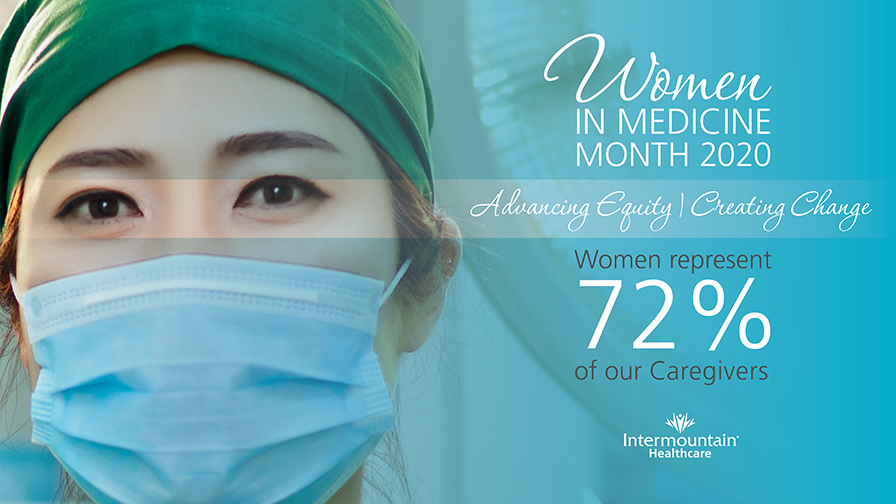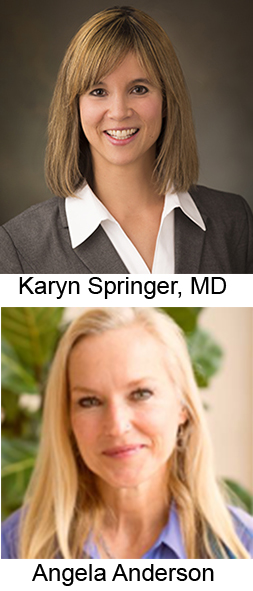
September is Women in Medicine Month and we honor and celebrate the exceptional women who care for our patients. This month recognizes the growing number of women in the profession and the importance of current and future female physicians and clinicians. Women are making an incredible impact on healthcare and medicine.
Women physicians have faced many challenges this year as they’ve demonstrated their tenacity and resilience during COVID-19.
Women physicians have been at the forefront of caring for and protecting our communities and patients during COVID-19. They’ve made crucial decisions about caring for patients in the safest way, provided sound counsel on how to stop the spread of the virus, and helped ensure healthcare workers are protected by wearing the safest PPE.
These same women have also faced unique challenges and multiple roles that have resulted from the pandemic. As schools and daycares have closed, women have become their children’s daytime caregivers and teachers. In addition, many women are caring for parents and grandparents who are unable to follow regular routines because they’re in high-risk categories.

From clinics to classrooms, women physicians inspire growth and help individuals.
“The word ‘physician’ means healer and like many, I chose a career in medicine with a desire to help others,” says Karyn Springer, MD. “My passion for teaching led me to become a physician. At their core, physicians are teachers. To teach means to give instruction, train, direct, warn and persuade — things I do multiple times every day as a physician. I teach patients about their health and persuade them to make healthier choices.”
Karyn also teaches residents about how to care for patients and navigate the complexities in medicine to be the best physicians they can be. She says, “Teaching opportunities are all around me,” as she teaches students in her clinic, medical assistants, other staff, and community groups.
Today’s women in medicine also work to address the health disparities women face in our communities.
“Women face many health disparities, including access to care and access to family planning resources, which are among the most concerning to me,” says Angela Anderson, CNM, certified nurse-midwife and Board Chair of the Utah Women and Newborns Quality Collaborative (UWNQC). Angela is dedicated to improving health outcomes for Utah women and babies using evidence-based practice guidelines and quality improvement processes.
“Our committees work hard to bring resources to women in our state,” Angela says. Their most successful work includes providing coverage and training for providers for long-acting reversible contraception (LARC) immediately after birth and improving access to mental health resources.
Angela has also partnered with the Junior League to lead Women's Services for their Care Fair. This annual health fair brings free healthcare to the underserved and uninsured in our community. “In the Women's Health Services area, we see several hundred women over a two-day period to offer free cancer screenings and connect women with necessary ongoing care,” says Angela.
Mentoring is a key to inspiring future women in medicine and their leadership.
As future women in medicine look for opportunities, mentoring is an important way for them to learn and be inspired. “Creating formal and informal mentoring opportunities and support is key to attracting women to medicine and healthcare leadership,” says Karyn. “We must look at developing a more inclusive workplace by finding what this means and really feels like for our female medical colleagues. This requires both understanding and celebrating our differences,” Karyn says.
Angela also works to mentor upcoming women in medicine. “My clinical practice takes a very active role in mentoring and precepting midwifery and nursing students, the majority of whom are female,” she says. “I often have women who are interested in midwifery come and shadow me to see what the profession is like. I expect to have more opportunities in the future to support women in medicine.”
“We honor both the current and future women in medicine for their dedication to the medical profession,” says Mark Briesacher, MD, chief physician executive. “Your care, leadership, and advocacy for people and for equity is inspiring. Thank you for the service you give to our patients, families, and communities.”

